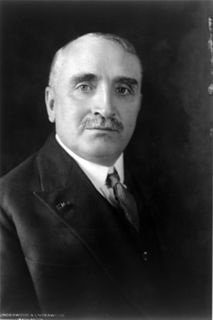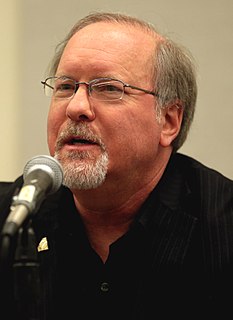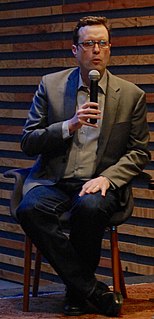A Quote by Timothy D. Snyder
Think up your own way of speaking. When we repeat the same words and phrases that appear in the daily media, we accept the absence of a larger framework.
Related Quotes
I'm not trying to create an aesthetic that's my own; I'm trying to create a way understanding things through drawing and painting. That's the common thread. Things can look different, but that's not what's important. What's important is the process is the same, the ideas are the same, I'm using the same building blocks, but they're different. The larger framework is the same; it's the pieces that change. For me, it's about these different elements, but you're still fitting them together into sentences, words, paragraphs, and stories.
The English language lacks the words 'to mourn an absence.' For the loss of a parent, grandparent, spouse, child or friend we have all manner of words and phrases, some helpful, some not. Still, we are conditioned to say something, even if it is only 'I am sorry for your loss.' But for an absence, for someone who was never there at all, we are wordless to capture that particular emptiness. For those who deeply want children and are denied them, those missing babies hover like silent, ephemeral shadows over their lives. Who can describe the feel of a tiny hand that is never held?
The more you simplify, the better people will perform. People can not understand and keep track of a long complicated set of initiatives. So you have to distill it down to one, two, or three things and use a framework they can repeat, they can repeat without thinking about, they can repeat to their friends, they can repeat at night.
He who dictates and formulates the words and phrases we use, he who is master of the press and radio, is master of the mind. Repeat mechanically your assumptions and suggestions, diminish the opportunity for communicating dissent and opposition. This is the formula for political conditioning of the masses.
I have shot myself in the foot so many times, I'm crippled. Look, I am not exactly Mr. Great Career Guy. I shoot actually what I think. In a weird way, I used to think that was really messed up. Now I think it's okay. Mistakes, once you don't repeat the same mistakes, have no regrets. Live and learn. We mess up, so what. But know why you messed up and don't make the same mistake.
If you're having a hard time being compassionate to or forgiving of yourself or others, you repeat these four phrases directed to yourself or the other person: "I'm sorry. Please forgive me. Thank you. I love you." And just by saying and feeling those phrases, you will find your heart starts to melt.



































